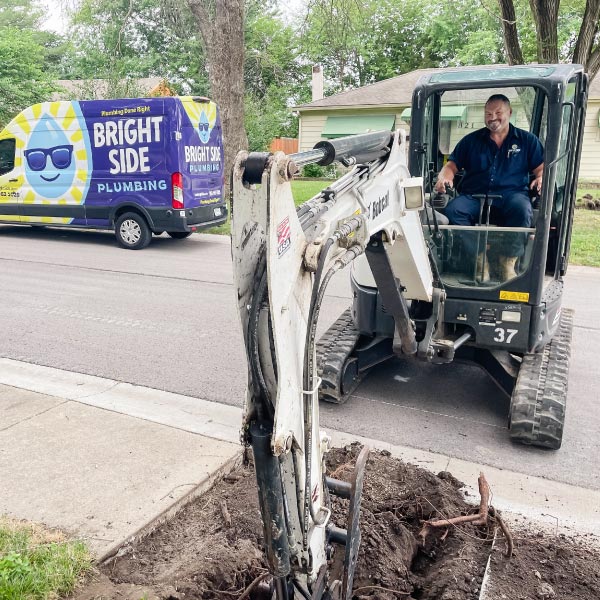Top 5 Things To Consider About Your Sewer
The Causes of Sewer Problems
One of the first things you should consider when having your sewer repaired is the cause of the problem. Several factors can contribute to sewer issues, including:
Tree Roots: If you have trees in your yard, roots could grow into your sewer pipes, leading to blockages and damage.
Corrosion and Deterioration: Over time, your pipes can corrode and deteriorate, leading to leaks and other problems. Piping deterioration can be caused by various factors, including age, the type of pipes you have, and the pH balance of your water.
Blockages: Your sewer pipes can become blocked by various things, including grease, soap, and other foreign objects. If you’re not careful about what you flush down the toilet or put down the sink, you could end up with a blockage.
The Signs That You May Have a Sewer Problem
If you have a sewer problem, there are several signs you should look out for. Some common symptoms include:
Slow or Clogged Drains: If your drains are moving slowly or entirely clogged, it could indicate a sewer issue. A blockage could cause this in the pipes or a break in the line.
Foul Odours: If you notice a terrible smell coming from your drains or yard, it could indicate a sewer problem. A waste build-up could cause this in the pipes or a break in the line.
Standing Water: If you notice standing water in your yard, it could be a sign that you have a sewer issue. A break in the line or a pipe blockage could cause this.
Leaks: If you have corrosion or evidence of water leaking on the outside of any exposed piping, that is a sign that the piping needs to be replaced. Especially for cast iron pipes, the lines rot from the inside out. So, evidence of rot or leakage on the exterior tells you that the interior is much worse and the whole pipe is past its useful life.
The Different Methods for Repairing Sewers
If you have a sewer problem, it’s essential to address it as soon as possible. Several different sewer repair methods can be used, including:
Excavation: One of the most common methods for repairing sewers is excavation. Excavation involves digging up the pipes and replacing them with new ones. While this method is effective, it can disrupt your property and take longer to complete.
Pipe Lining: Another option for repairing sewers is pipe lining. Pipe lining involves using a liner to coat the pipes inside, creating a new, seamless pipe within the old one. This method is less disruptive to your property and can be completed more quickly than excavation.
Pipe Bursting: Another option for repairing sewers is pipe bursting, which involves using a machine to burst the old pipes and replace them with new ones. This method is less disruptive to your property and can be completed more quickly than excavation.
The Importance of Timely Repairs
Property Damage: Sewer problems can cause severe damage to your home and property. For example, if a sewer line breaks, it can cause flooding and water damage to your home. Additionally, if you have a blockage in your pipes, it can lead to backups and overflowing, which can cause damage to your floors and walls.
Health Hazards: Sewer problems can also create health hazards. For example, a blockage in your pipes can lead to foul odors and bacteria buildup, harming your family’s health and creating an unpleasant living environment.
Environmental Hazards: Sewer issues can also be harmful to the environment. For example, if your sewer line breaks, it can leak sewage into the ground, contaminating the soil and water supply. Additionally, if you have a blockage in your pipes, it can lead to overflowing and waste spilling into the environment.
Tips for Preventing Future Sewer Problems
While it’s not always possible to prevent sewer problems, you can do a few things to reduce your risk of having an issue in the future. Here are a few tips for preventing future sewer problems:
Properly Dispose of Grease and Oil: Grease and oil can solidify your pipes and lead to blockages. To prevent this, properly dispose of grease and oil by pouring them into a container and disposing of them in the trash.
Don’t Flush Foreign Objects: Be careful about what you flush down the toilet. Foreign objects like wipes, paper towels, and feminine hygiene products can cause blockages in your pipes.
Inspect and Maintain Your Pipes: Regularly inspecting and maintaining your pipes can help you catch any issues before they become significant problems. Be sure to have a professional inspect your pipes every few years to identify potential issues. At Bright Side Plumbing, we even do that for free.
In conclusion, there are several things you should consider when having your sewer repaired. By following these tips and addressing any issues as soon as possible, you can help protect your home and property from the damaging effects of sewer problems.
If you want to have sewer problems out of your life, call us, and we will schedule a free evaluation with a master plumber to give you the best options for you.





